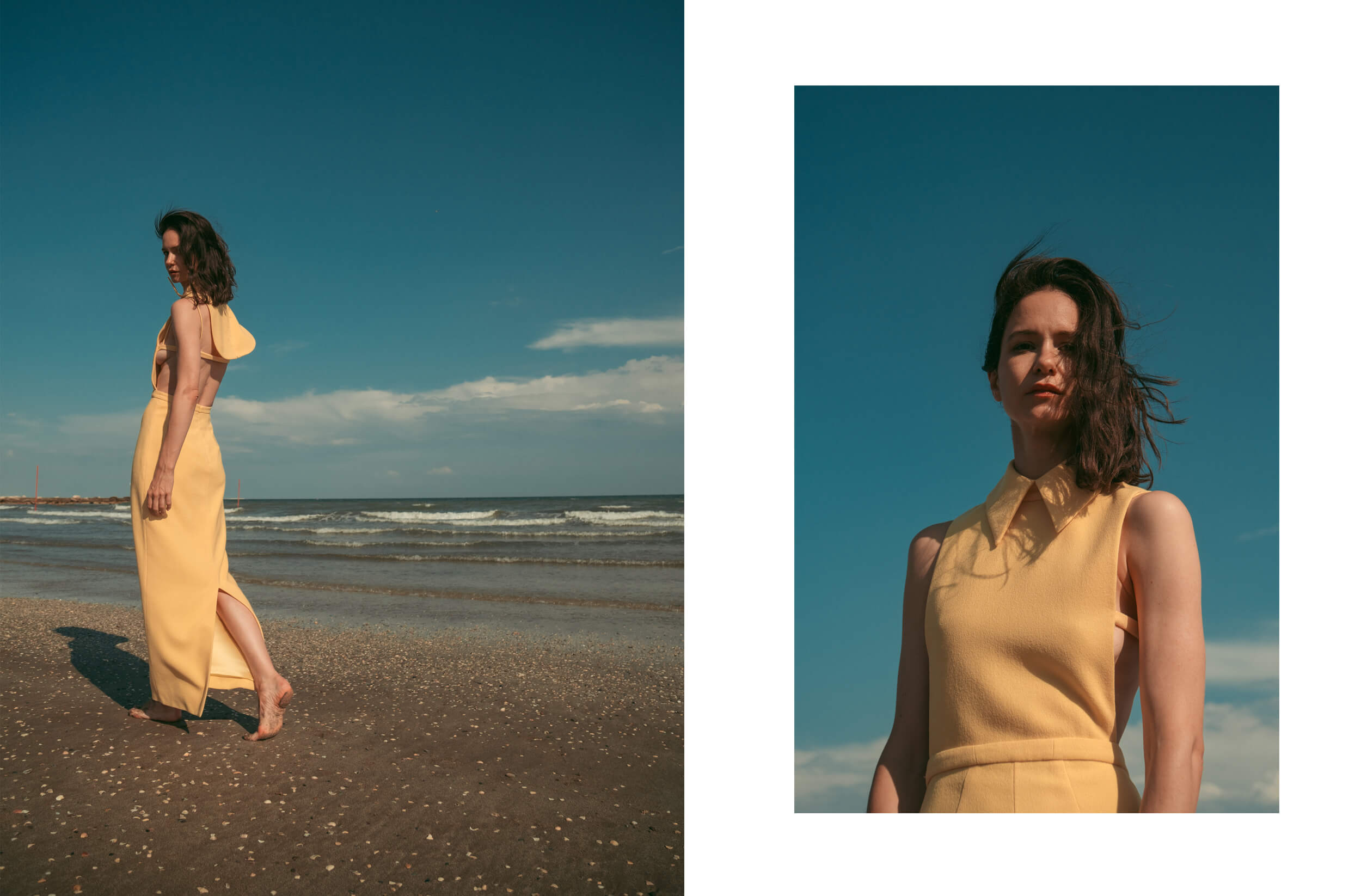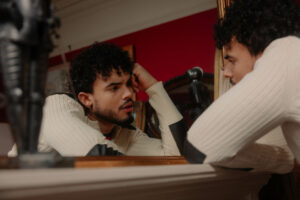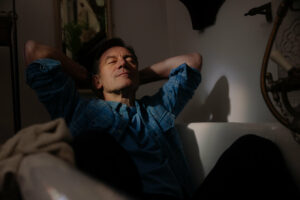There are interviews… and interviews.
And the one with Katherine Waterston is one you don’t forget.
We met Katherine in Venice during the Film Festival, where she presented the film “The World to Come” with Vanessa Kirby and directed by Mona Fastvold, and in which she plays Abigail, a 19th-century woman living with the grief of the loss of her child but who discovers life again thanks to the love of another woman, Tallie.
After seeing the film, I had many questions to ask her: the words of her character Abigail, with her voice and her eyes, had an intensity that we don’t often see. An intensity that leaves you with bated breath while watching the film, and that leads you to have an almost unique empathy towards the character. Silences, expressions, perfect dialogues but, above all, unspoken words: everything is punctuated by her voice and, once again, by the intensity with which Katherine manages to make you feel those emotions, almost with a hint of pain. But for which you are grateful because it makes you understand the true essence of the film and of the woman she plays, making you place feelings and emotions inside you.
Intensity is the word to describe Katherine too, a woman who wants to create something rare with her work, living in the moment and always looking for that little connection with the world.
Katherine is fun, deep, and unique.
Katherine is our Cover Story, and we hope with her to have framed a small snapshot of time, between sand and sea, which we will not forget.
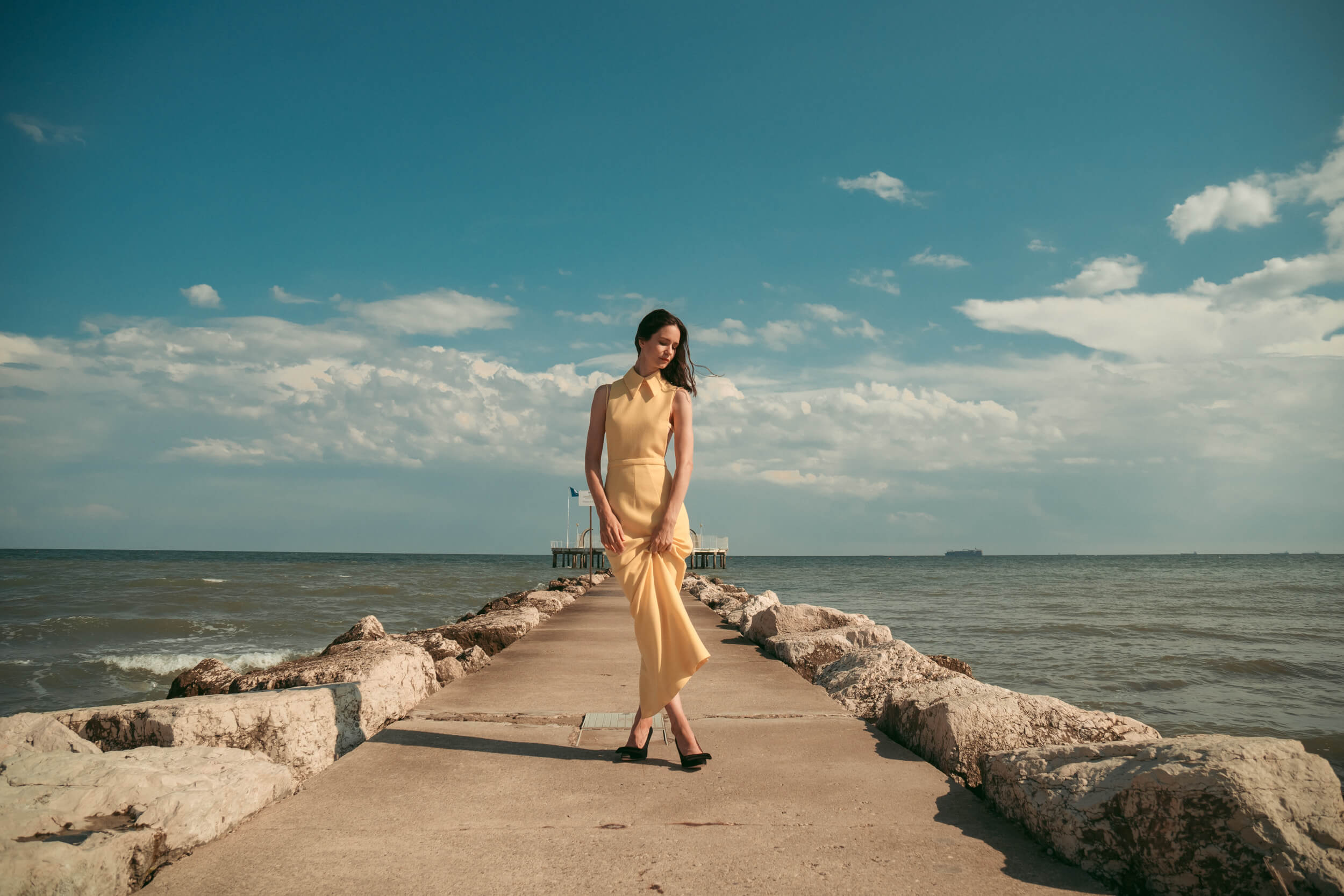
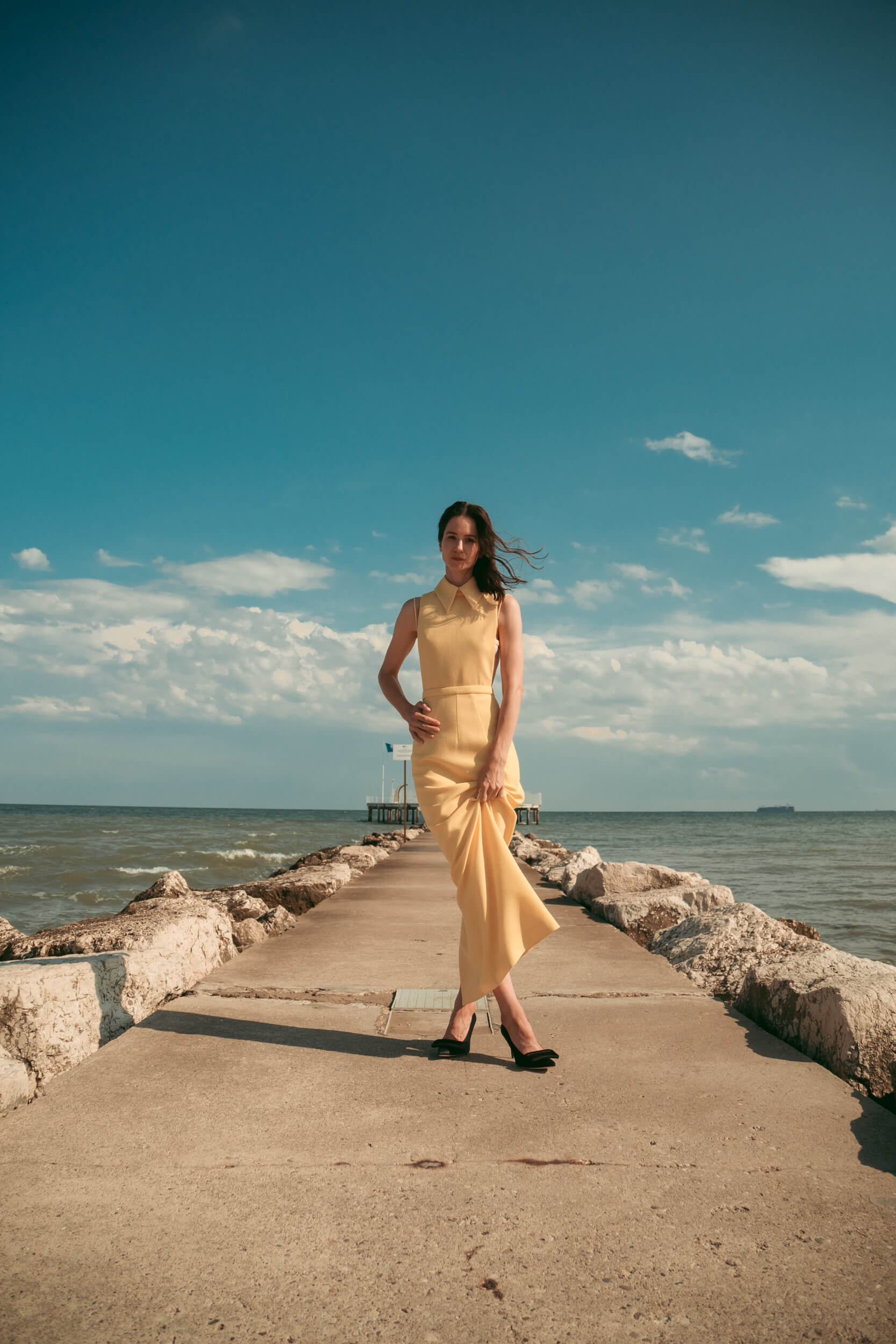
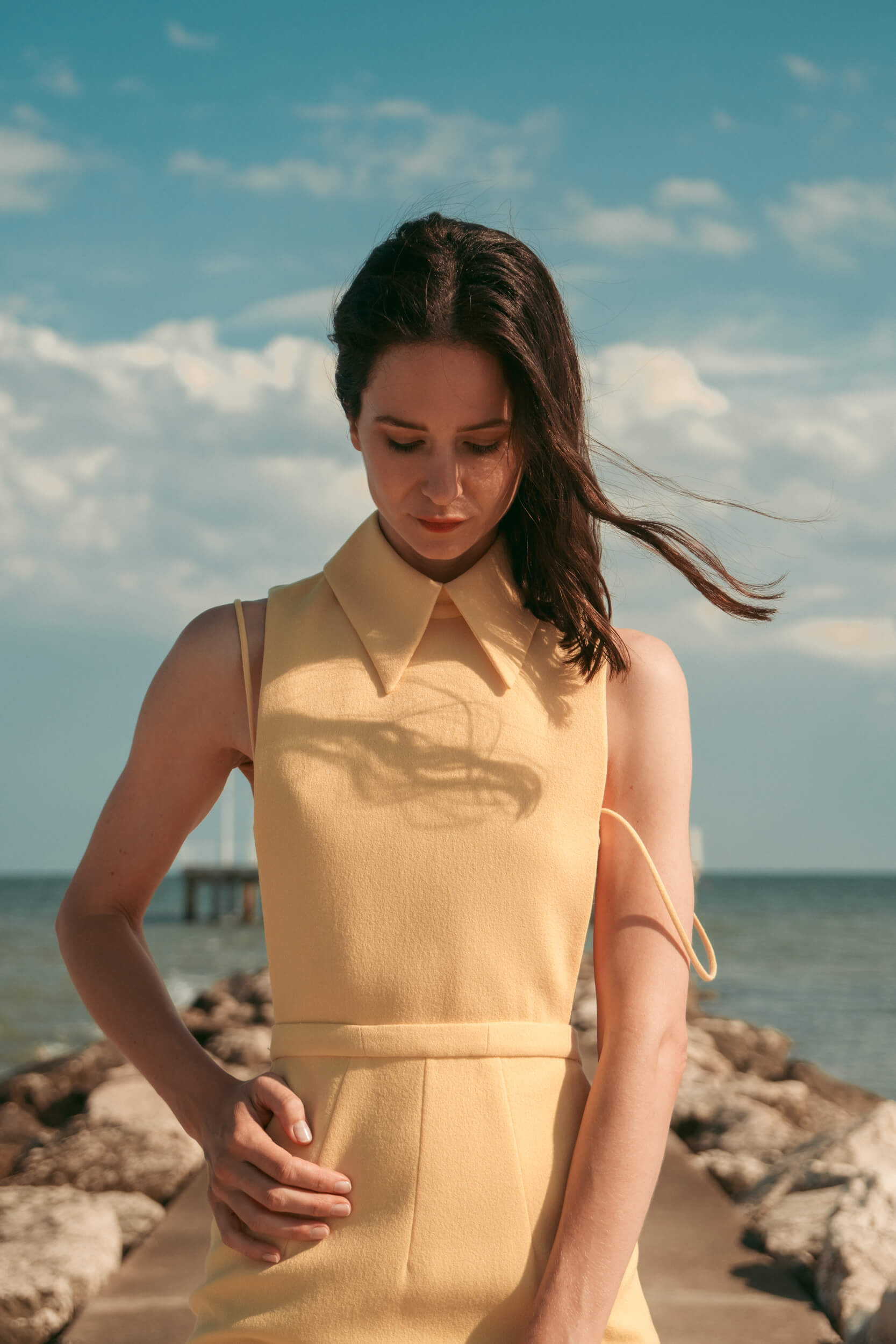
First of all, I loved the movie. I really think you were astonishing in every moment of the film. When you first read the book or the script what were your first thoughts about Abigail?
When I started to read the first page, there was a brief description and then her first line, a voiceover. It didn’t end up in the film, but the first line was “at night I often wonder if those who have been my intimates have found me to be a speak hill whose view does not repay the ascent,” meaning: “I wonder, if I disappoint people, the effort it takes to get to know me, is it worth it?”. So this woman at night as she lays in bed, this is what she’s wondering: not “what have I gotten from life”, but “what I have given to it: have I offered anyone, anything of value?”
When I talk about it I still get chills because it struck me. It was such a specific thought and so devastating! This person who is full of so much hunger and desire to be in and of the world, to be stimulated, educated, to have a pursuit, all the things that most people want for themselves on some level, none of it is available to her and she’s not thinking, “poor me!”, she’s thinking, “poor those who know me!”. I read that, it wasn’t even a third of the way down the page, and I knew I would do the film.
Abigail and Tally’s interaction feels like a dance. They search for each other and they are both discovering something new. How was doing this choreography with Vanessa [Kirby]?
I often think of acting as tennis: you’re supposed to keep the ball in the air, well not if you’re trying to win at tennis, but that’s the idea, you take the force and the power that one person gives you and you try to return it to them and keep this exchange alive and active. Vanessa is someone who really can do that. All the happy times I’ve had acting have felt like dancing in a way: you’re moving together, you’re responding to one another and definitely, it felt like that with her. In terms of what we were trying to achieve with this particular story, it’s two people who are trying to communicate with one another but don’t necessarily have all the tools they would like to have or a way to understand everything they’re feeling.
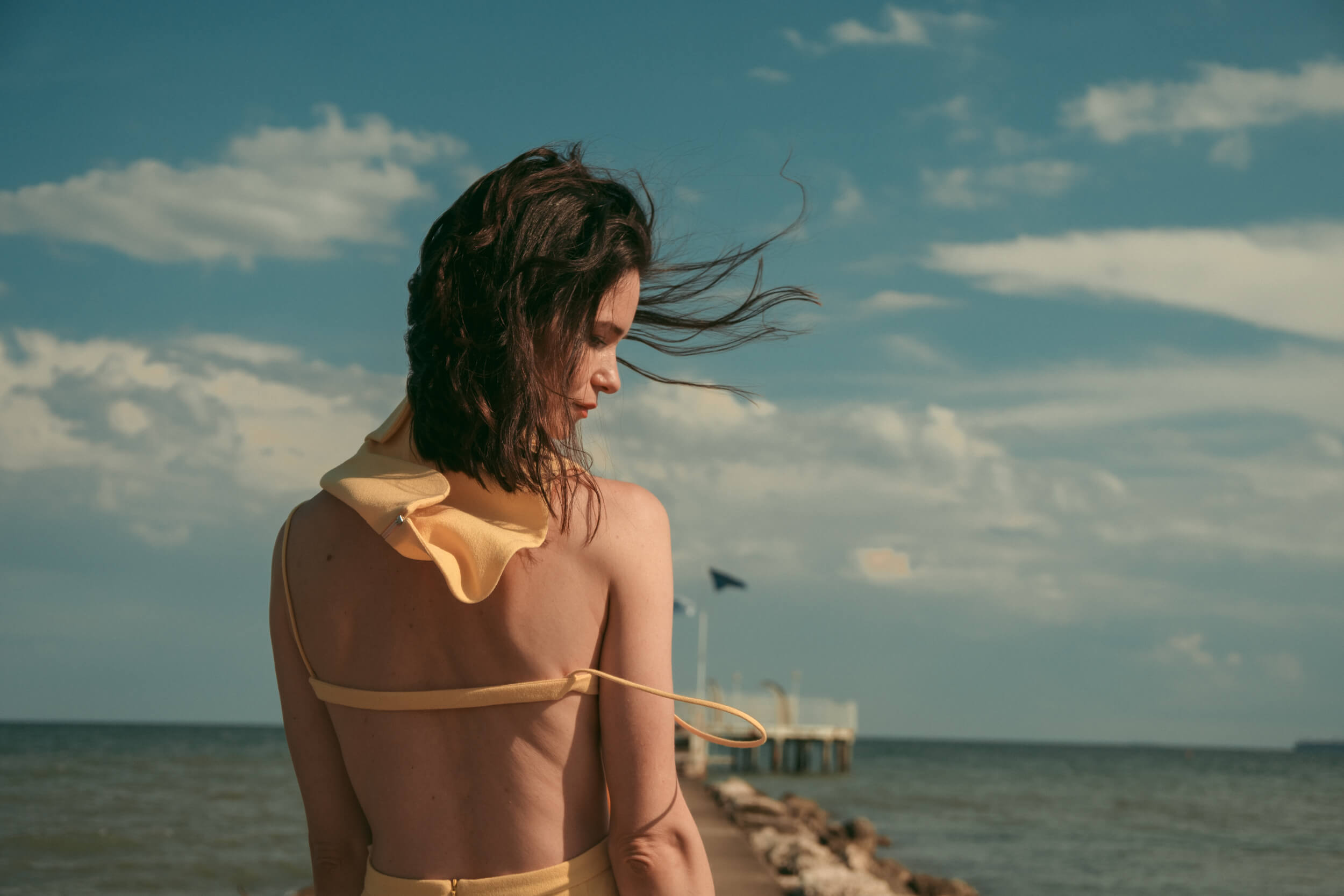
Then there is also this tremendous risk in expressing those feelings, just as it is in anyone when you don’t know if the feeling will be reciprocated, but in this situation, there are slightly higher stakes, because either of them has never expressed feelings of this kind for another woman so there is some fear there, but I think, more than fear it’s just discovery and this is something so beautiful about the script, they don’t always know what to say. Just like in real life!
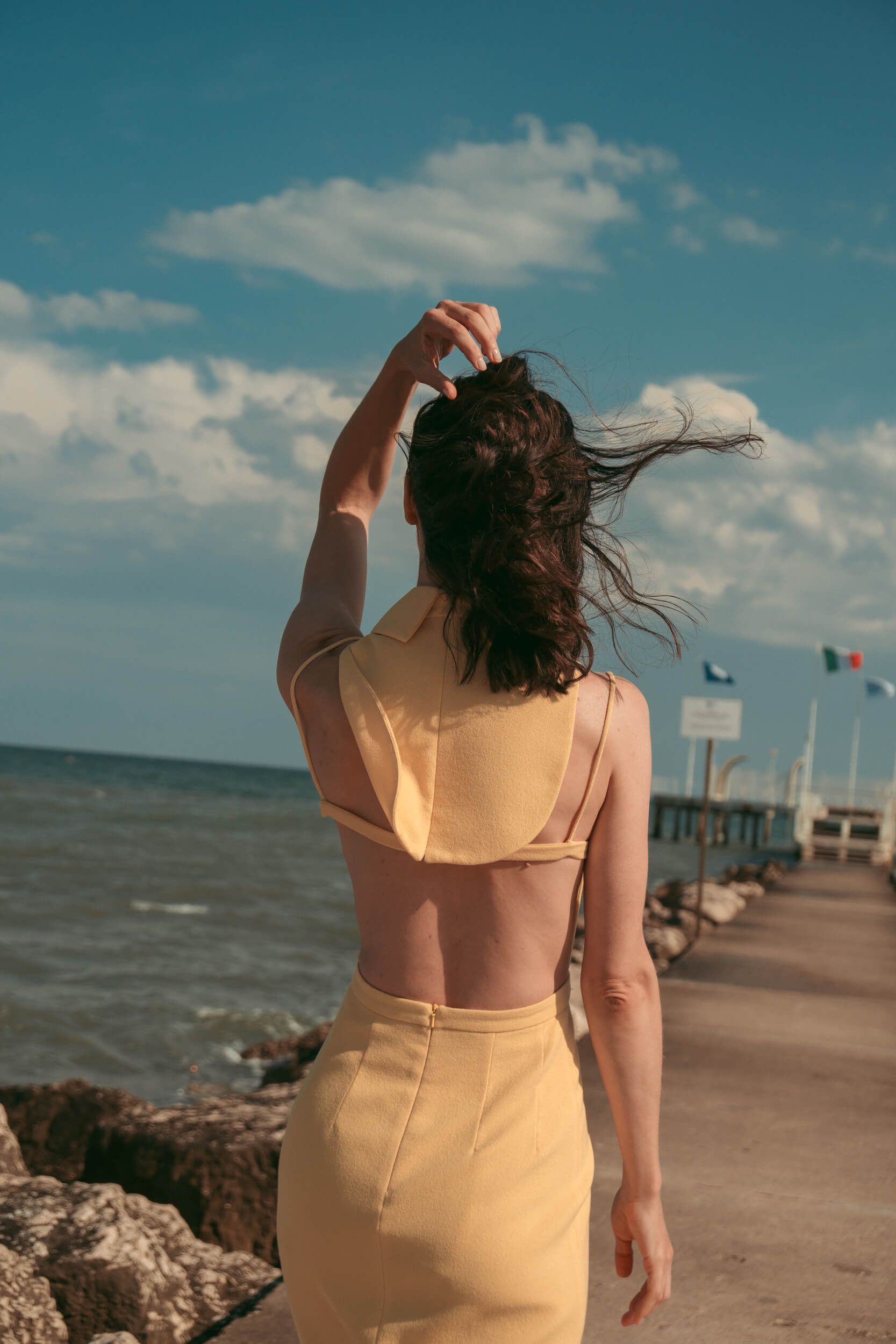
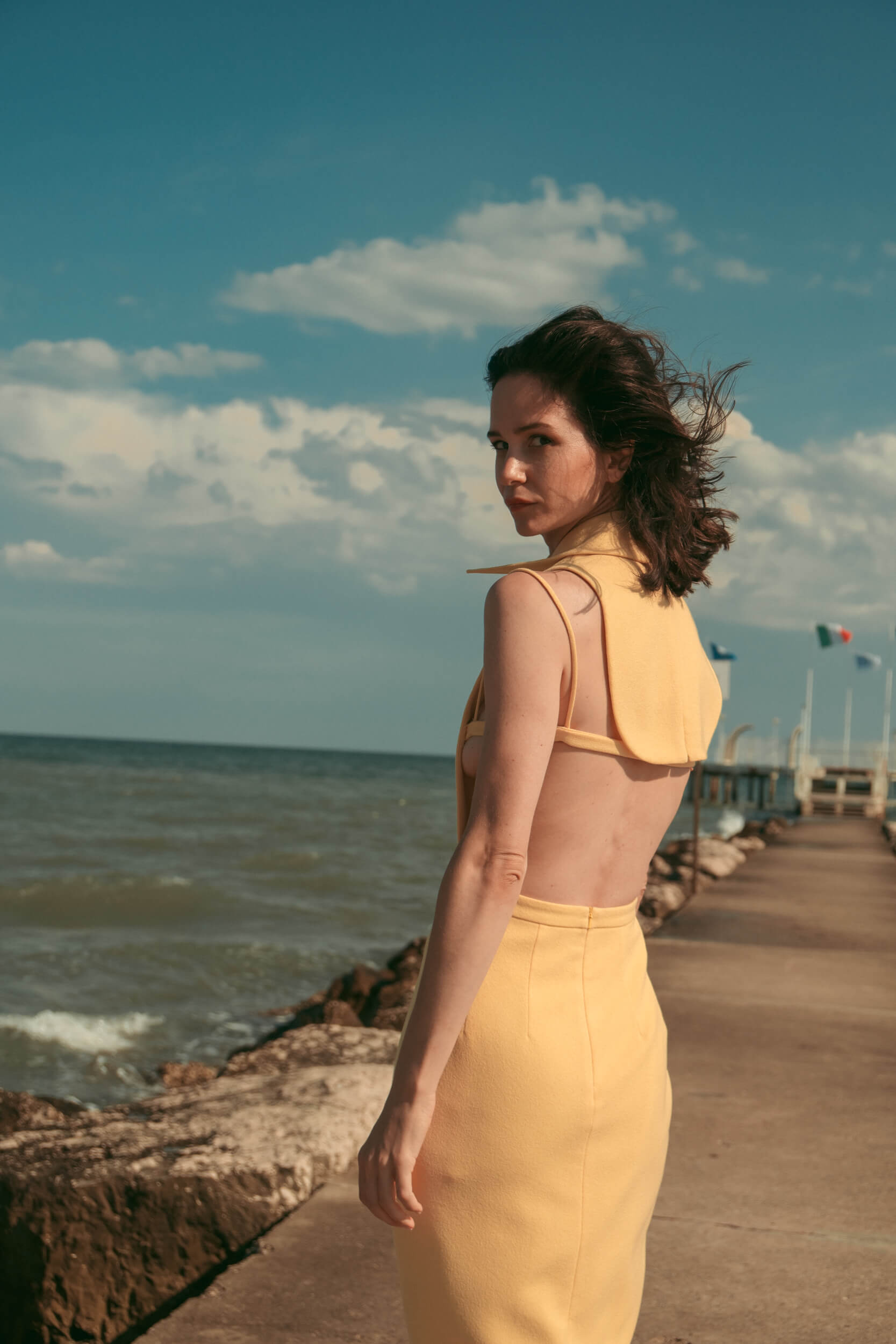
“When I talk about it I still get chills because it struck me.”
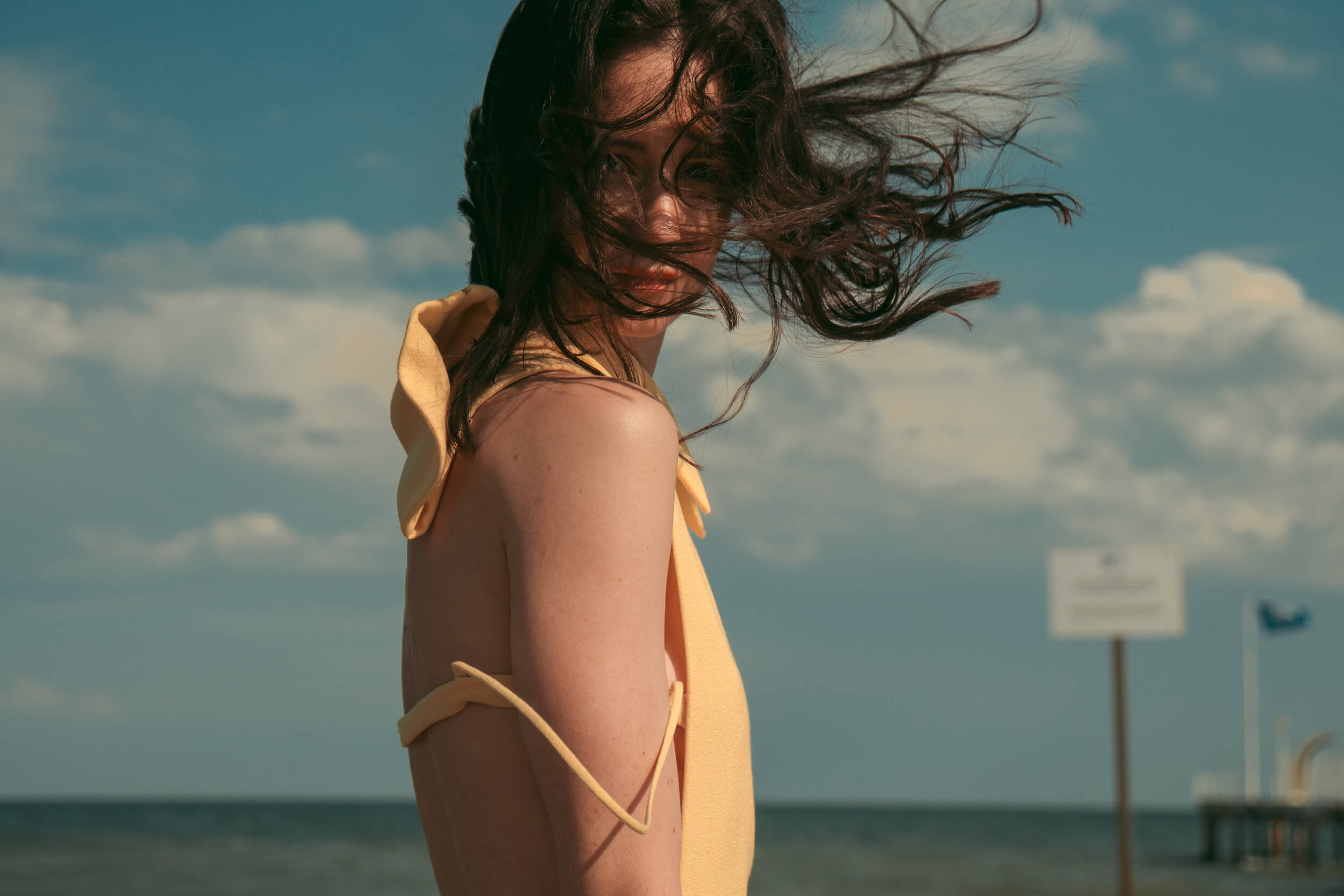
It is so real, so human! We had an immediate connection…
…good! You never know, it’s so wonderful when you hear that what we were striving for, maybe to a certain degree, we achieved it because people are responding and feeling they can relate to these moments where you don’t always understand what you’re feeling yourself, you don’t always know what to say. Or you do know what to say but you don’t dare say it, and all of those complexities that come up as you fall in love.
In particular, when you say, “I have become my grief,” I thought it was a very powerful sentence. A lot of people who have been through the trauma of losing a child really can relate. Do you think that this movie can also open a discussion on that kind of depression or maybe be more transparent about it?
Yes! I had a very interesting experience making this film because it was shot seasonally: we had a summer session, then we had a little break because we needed to wait for the winter to come, and then we shot the winter session. Strangely, simultaneously I was making a television show that required a summer session and a winter session.
The television show I was doing is with Jude Law, and his character had lost a child and so I was playing between these two worlds that had these parallel theme and in one I am the parent of children who can’t fathom what my friend has gone through and in the other, I am completely in it and experiencing that grief and it was a strange exercise to go between something where I needed to fully embody this grief and another role where I couldn’t really understand it. As a result of doing both those roles at the same time, I just felt such a profound feeling of empathy for people who have experienced this horrific tragedy in their lives; and also, when I started this job I had a five-month-old son, so this feeling was very close to me.
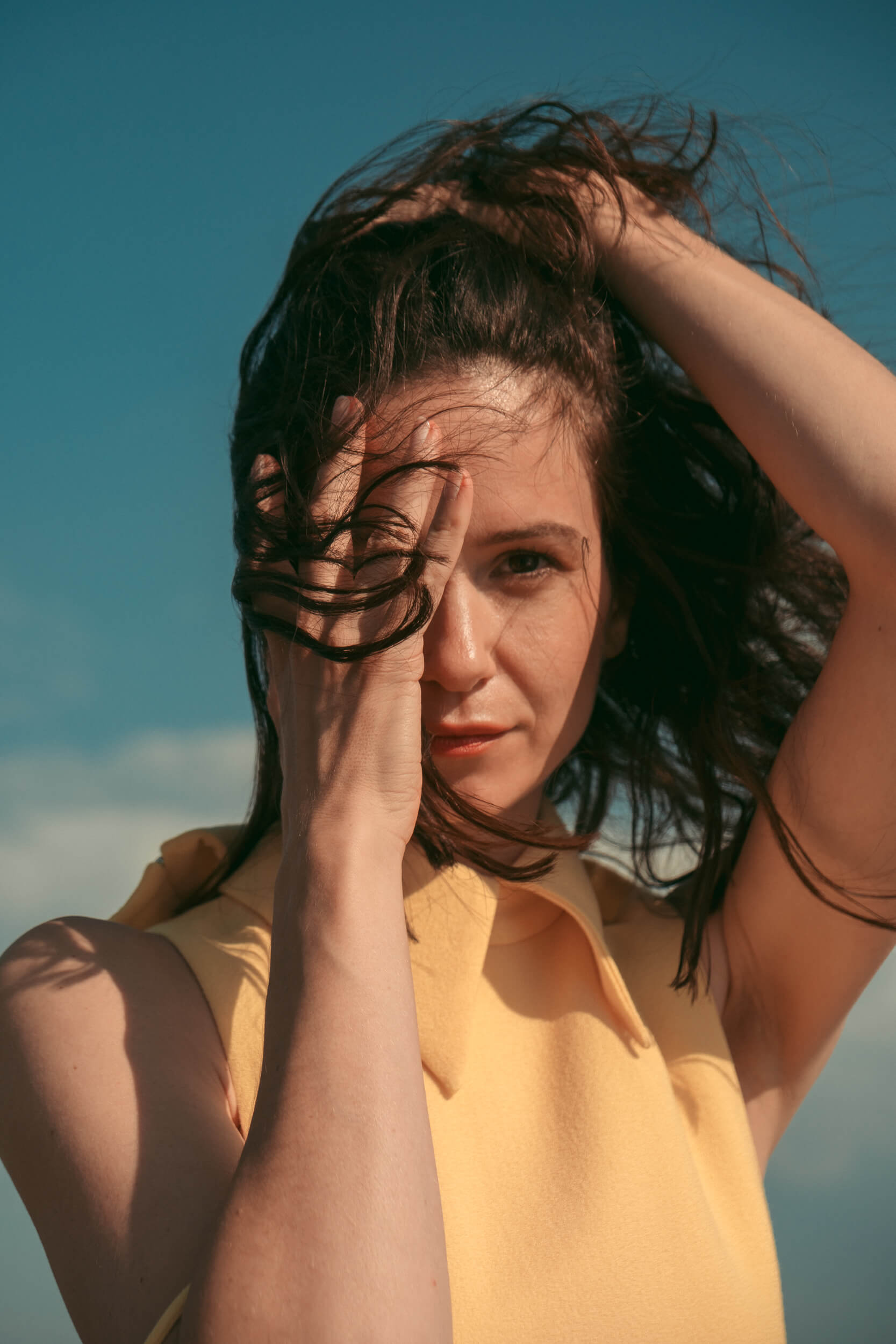
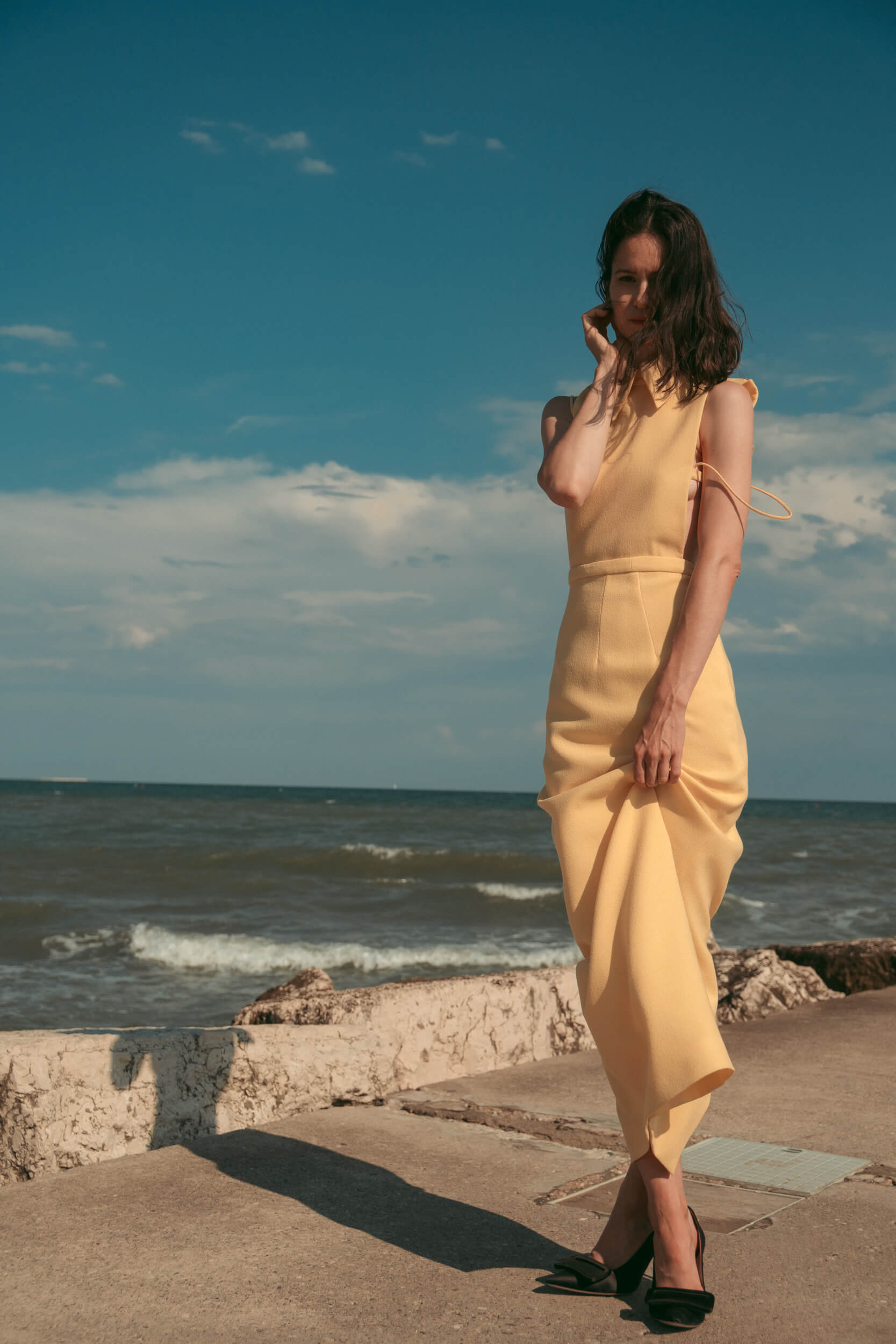
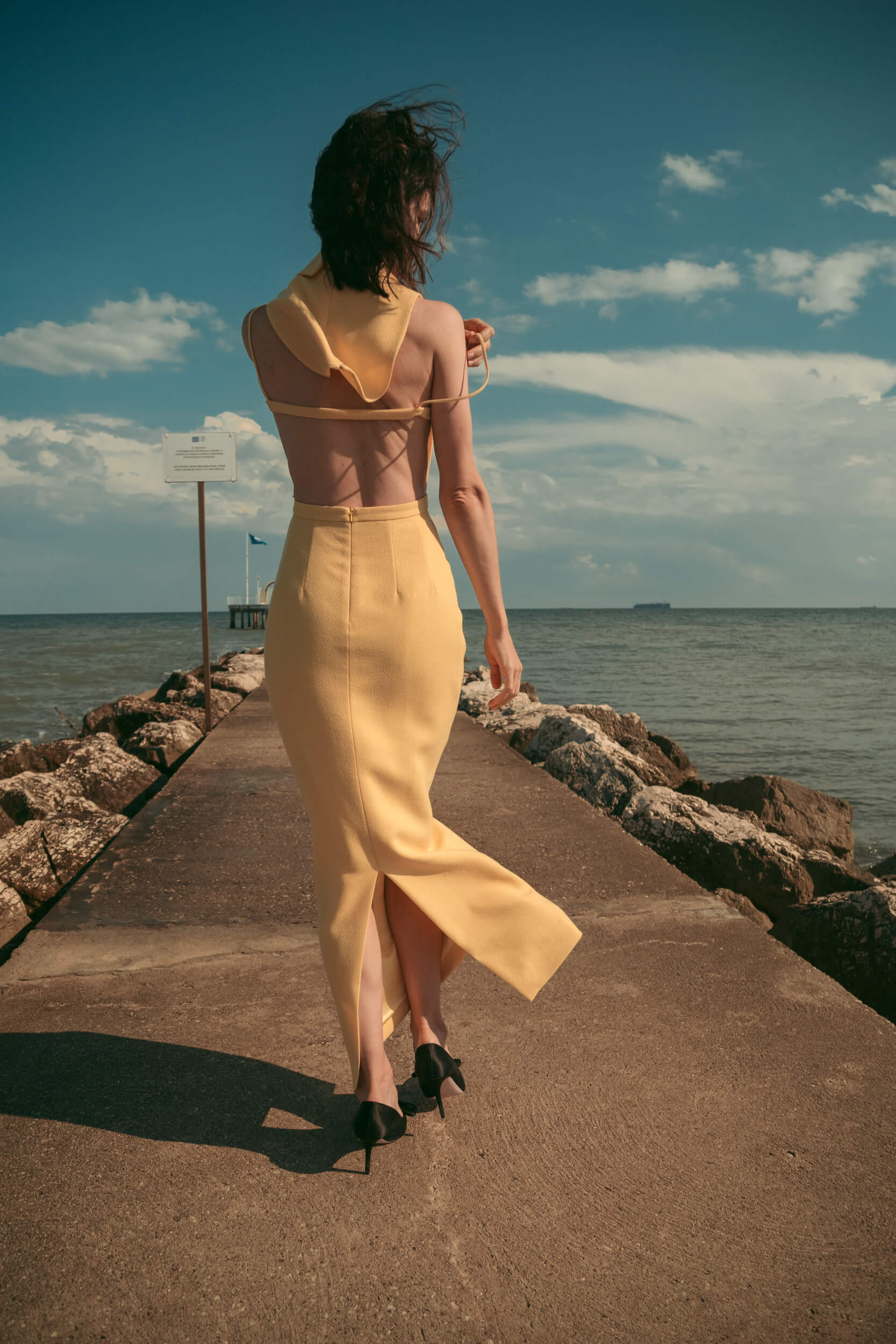
When you have a child, they become everything, and so how do you make sense of your life when the thing that is “everything” is no longer with you?
Without this child there is nothing else, and how do you find meaning, or purpose, or joy in your life without that thing that has completely fulfilled you, that person who has become everything to you? Obviously, it was an incredibly painful psychological state to remain in. I had been sent the script right when I got pregnant, thus my entire pregnancy and then these early months of my son’s life I was living with this idea of the loss of a child, it was a very weighted time for me, to be experiencing this joy and having in my subconscious awareness of what it would be.
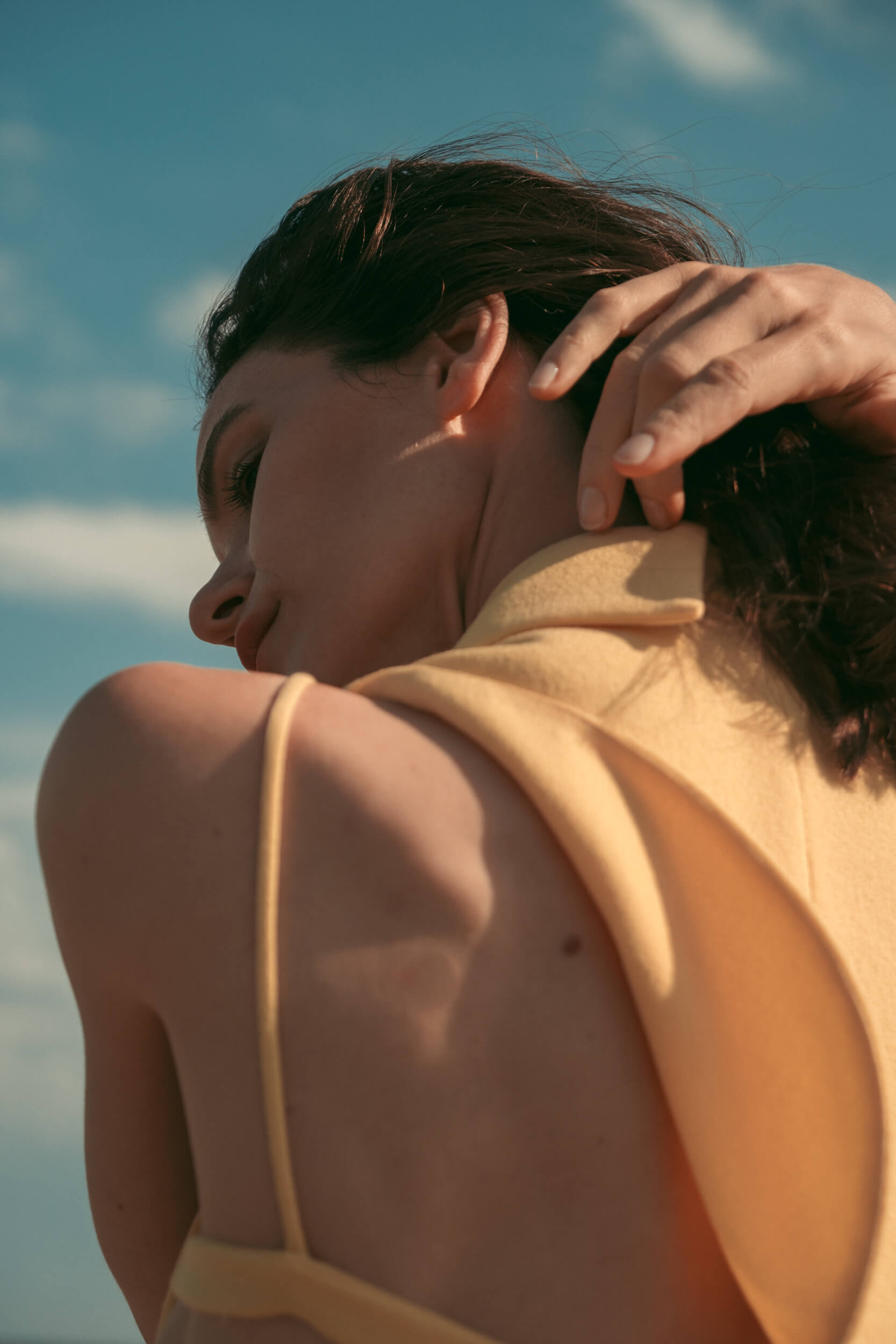
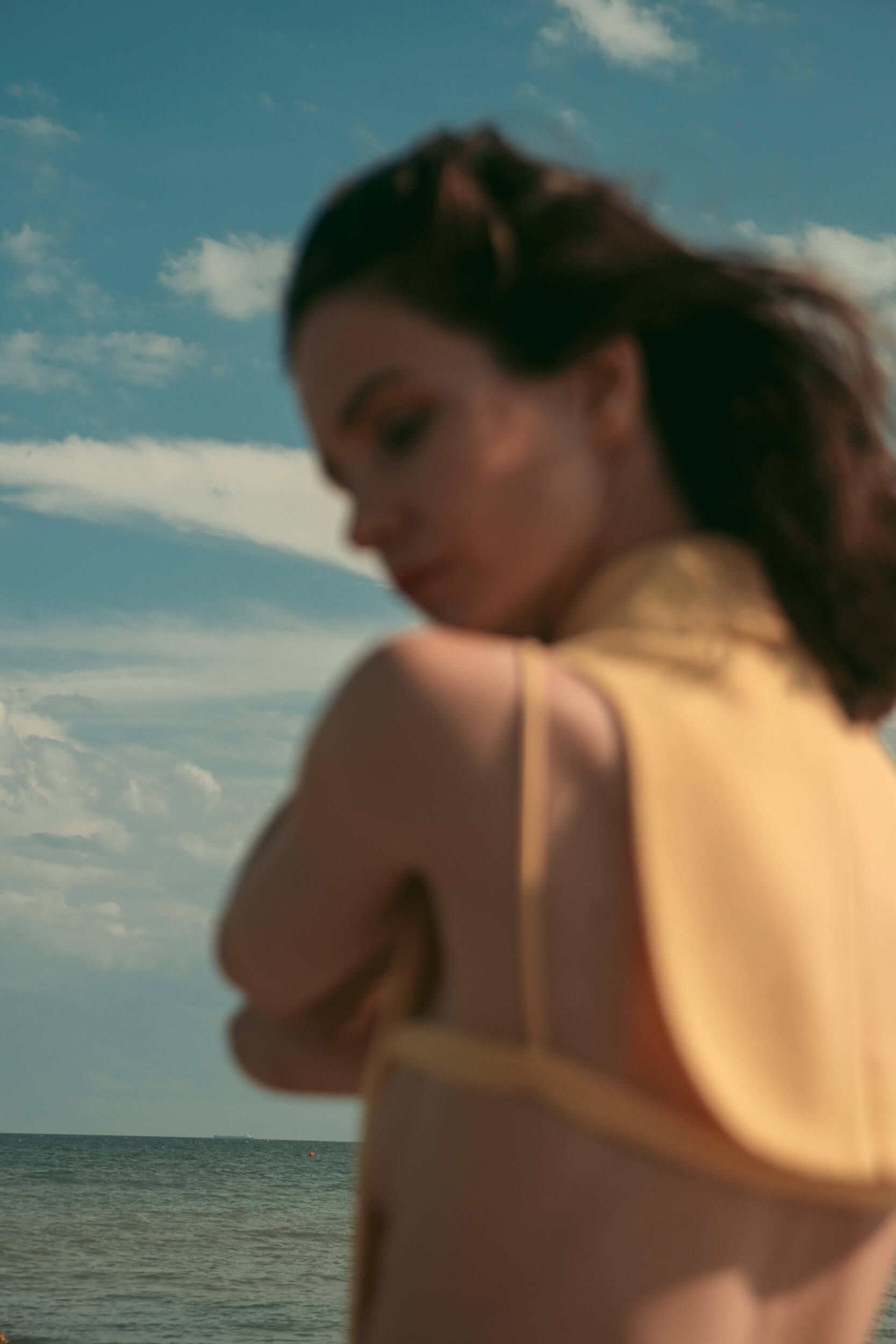
You’re talking about the loss of a daughter, but I think what you’ve succeeded in doing was showing universal grief.
Thank you. This is why actors panic when we get jobs like this because we are trying to represent these universal horrors. If you walk on the street, everybody has lost somebody. I get so struck, as I get older, to consider that everybody, even the person yelling at you because they don’t like the way you parked your car, or whatever it is, is walking around with this pain, and they handle it in different ways, and they cope with it in different ways. This is part of why we tell these stories, why we think telling stories is important. It’s because it unites us and reminds us to move a little more gently through the world because people are suffering. We feel the responsibility to do it well.
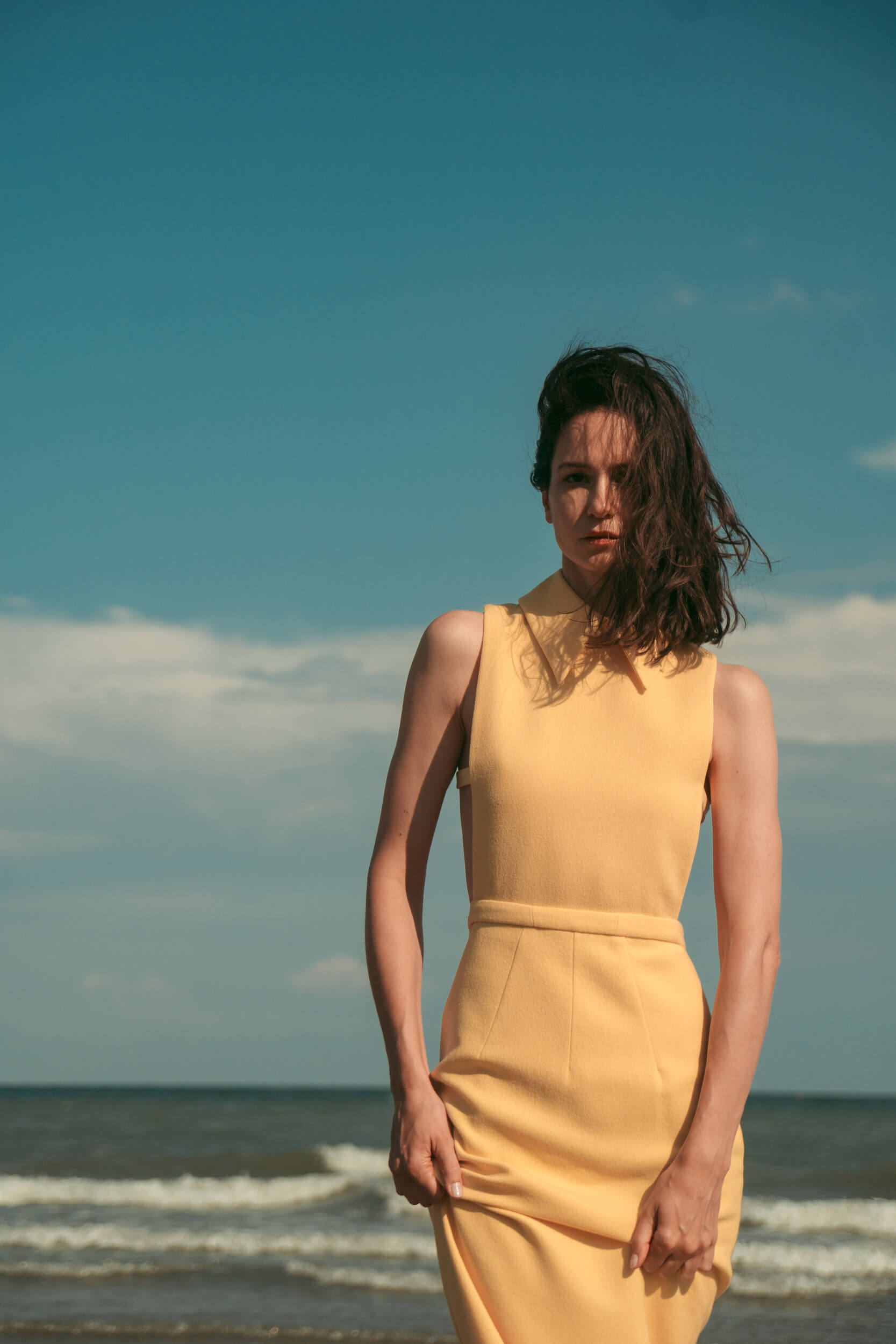
“…it unites us and reminds us to move a little more gently through the world because people are suffering.”
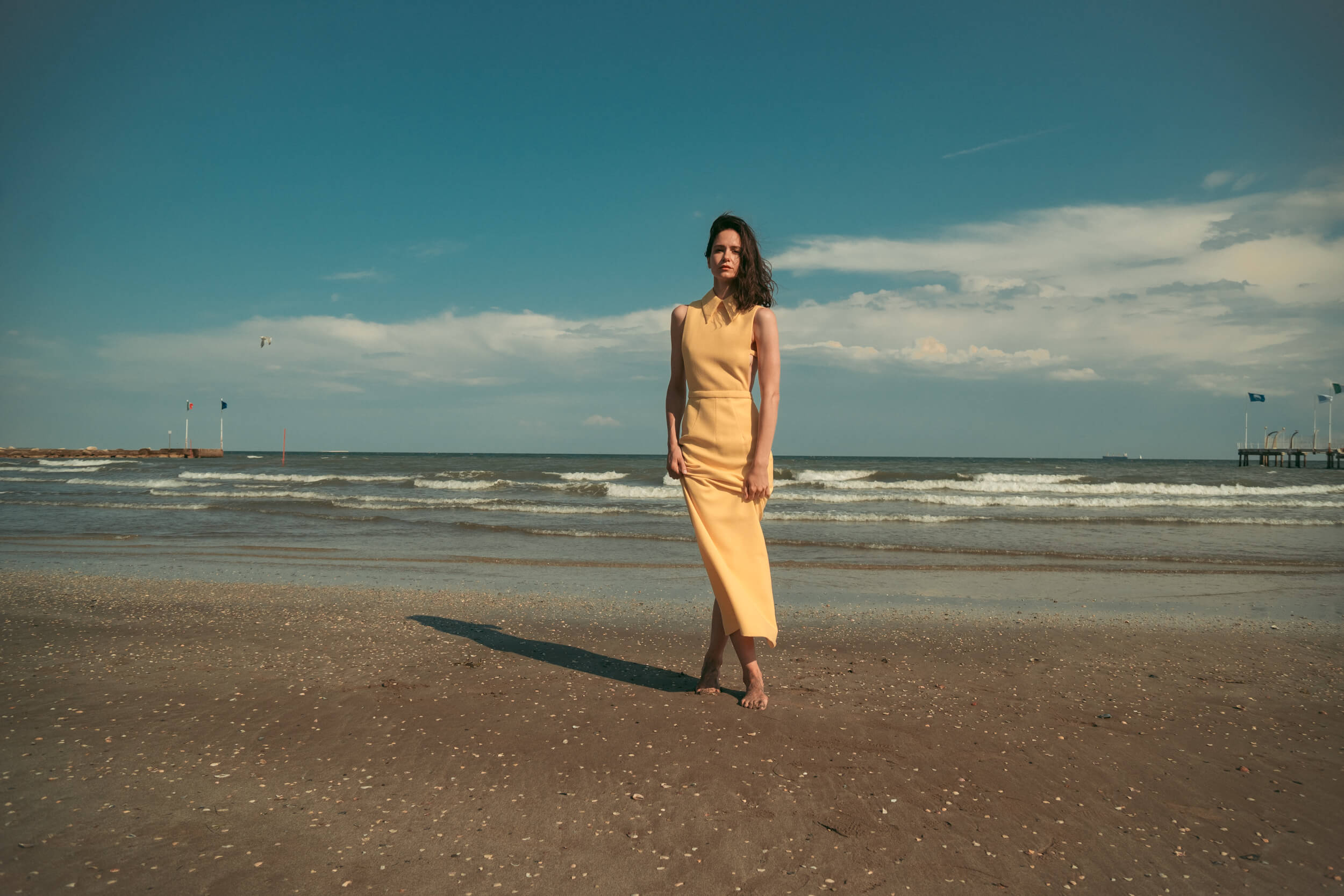
The movie is also about repressing emotions and Abigail tries to do that all the time, but we can still feel all the emotions, and that’s great. How did you manage to do that?
I like to work in a way where I feel very free in the scenes and I try to free myself from an idea of where they’re going because of course, I have the road map, I have the script, but I don’t want to be sort of predicting what hasn’t happened yet, so I try to learn it all and then forget it all. With this job, I felt I had to simultaneously be very exacting about calibrating the performance, because of the voiceover, which revealed so much about the character.
We had to see a contrast in the performance: the world between how she presents herself to the world and her inner one, that space between those two worlds. I was really conscious of the moments in performance where I chose to reveal something, reveal emotions. It was a big deal for Abigail because she is quite hemmed in, quite closed, quite shy, so I was really careful about that, I thought, “Okay if I’m going to show something, it’s going to be for a good reason.” For example when Tally cracks Abigail up in the beginning when she says she talks back to her husband and Abigail would never imagine doing that I wanted to show that this person behaves in a way Abigail has never seen before. I wanted to react to that, but I was nervous, I asked myself, “Should I react to it, or is it giving away too much? Should I save that for the voiceover?” But also, I was thinking that Tally has to feel like this is a place where she can come back, so there has to be a little of reciprocation even in the earlier scenes so that the friendship can grow.
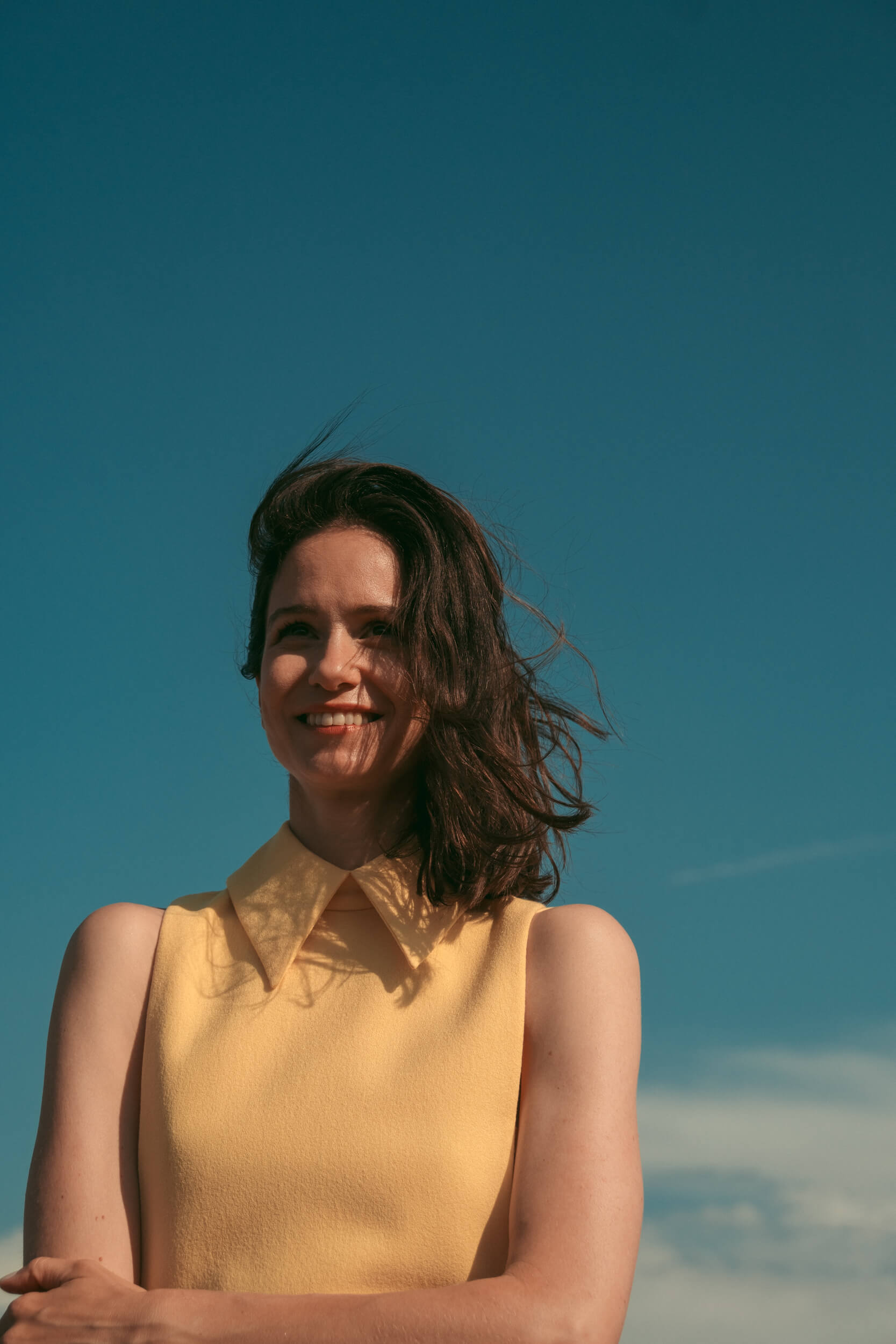
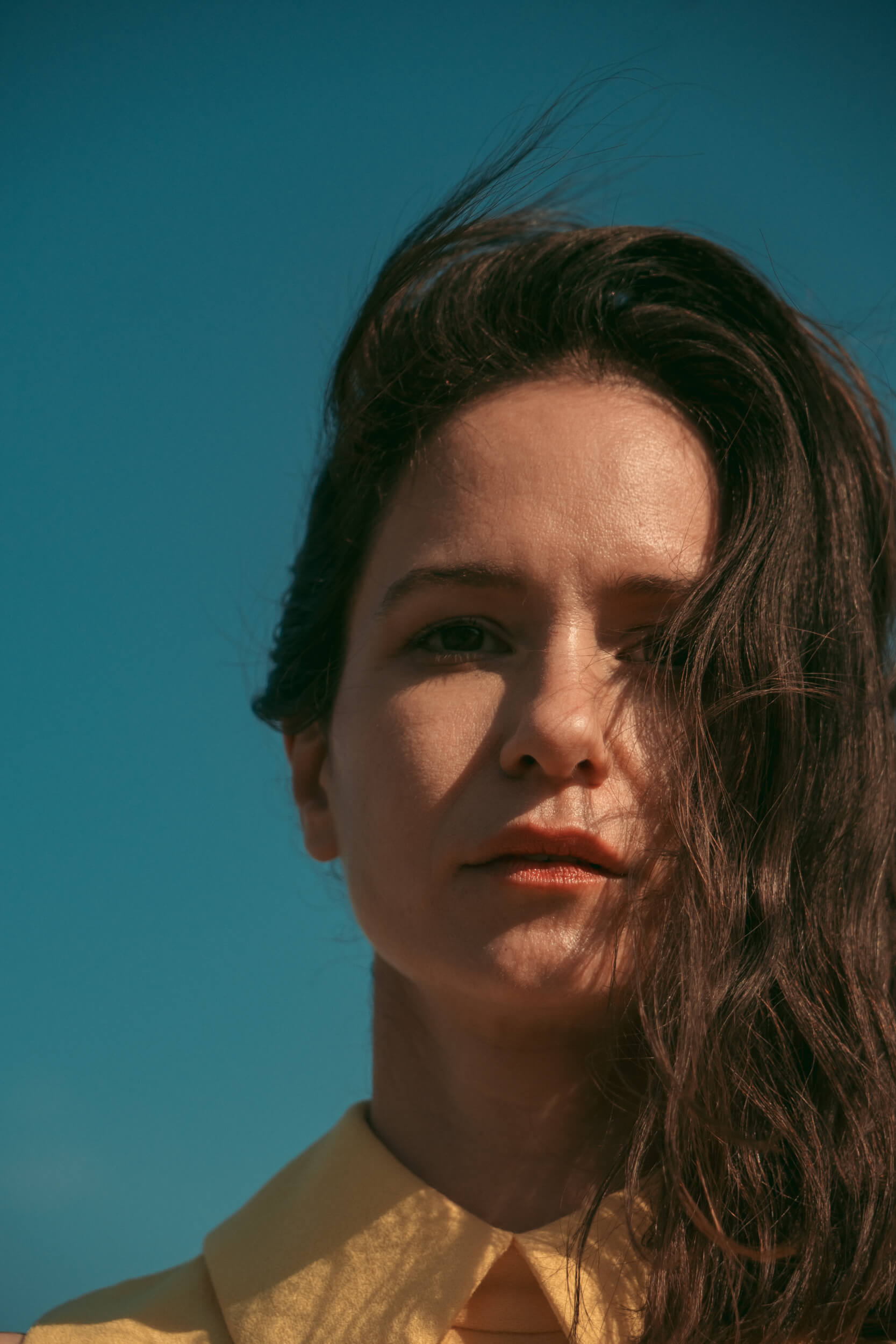
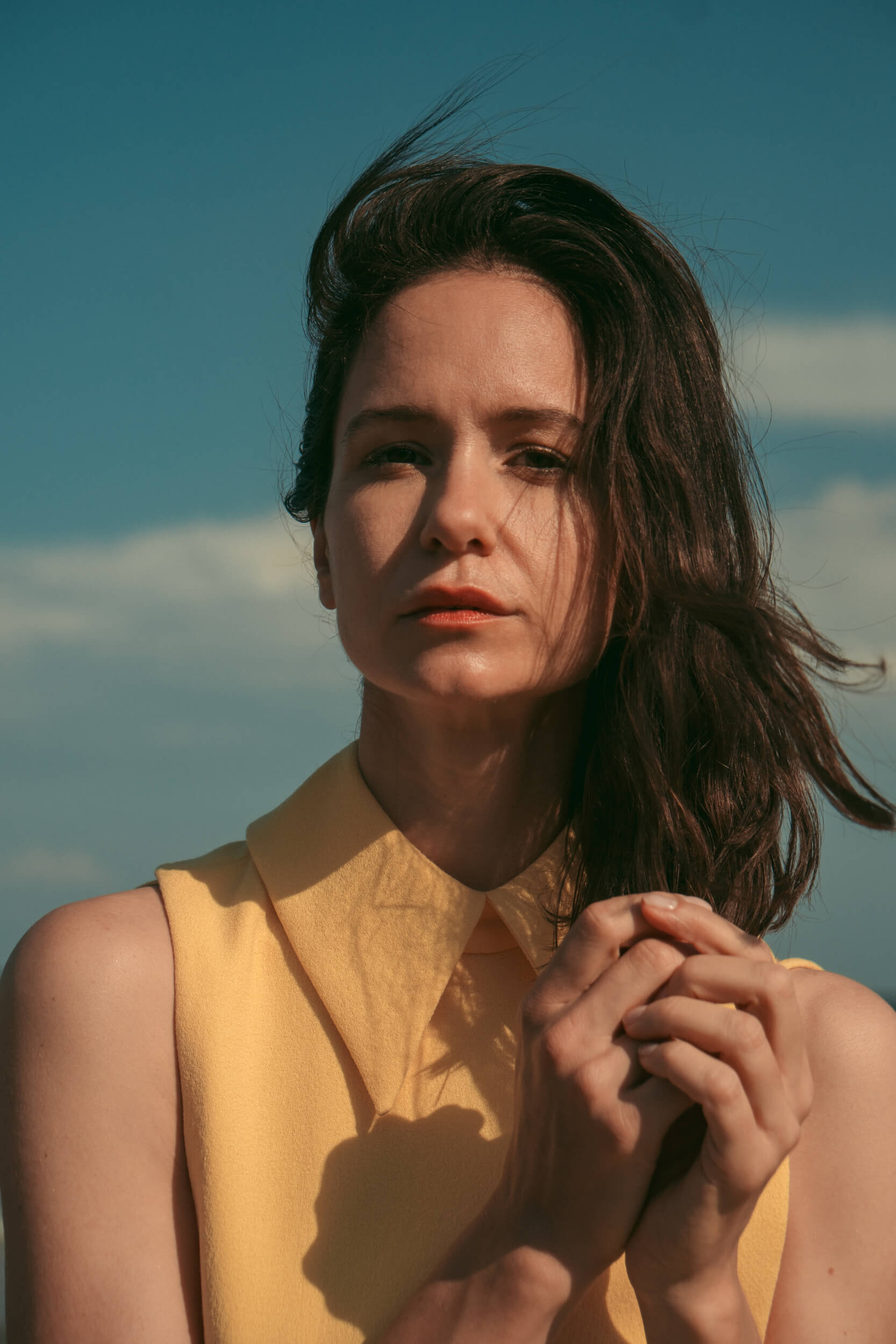
In some scenes, it feels like we are looking at a painting. If you could paint or photograph a moment in the movie what would it be?
We did a lot of farm work when we shot the film and Mona [Fastvold] found the right amount to use in the film, all of that work was in the film to show the audience these people’s lives are fixed, they’re not going to change, they have a certain amount of labor to do today and they’ll have the same amount to do tomorrow. To create that feeling we are always working on our farm, always very busy. We did a lot of early mornings scenes of just working in the field just as the sun was rising, and even before, just at dawn. It’s not actually in the film, but there was one scene where I was throwing seed on the ground and the bits of seed were sort of catching the light and there’s a bit of that moment in the film, so I would probably pick the moment with the seeds.
How was working with Mona and being directed by her? Maybe I’m wrong, but I think that with every experience and new people you have to work with, you bring home something new. What did you “take home” from her?
What I loved about Mona is that she had no ego that I could see on set. There’s this expression in English, “handling someone with kid gloves,” which means that sometimes you have to worry about people’s feelings on set, in the sense that if you disagree or question something, then you have to take care of them a lot. Mona and I would really work through the scenes in a very intense way on set and then I believe sometimes, afterward, you might worry and ask yourself, “Did we hurt each other’s feelings?”
There’s like an emotional element, but we would always have these wonderful dinners right after, we were just two people who really understood that you work your ass off on set, but leave it on set. I felt like she had this kind of natural ease in moving between the time offset and the very rigorous work we did on set. I had never seen that before, and if I ever direct anything, I would want to work the same way, as you give it your all, and then you have a nice glass of wine and you let it go.
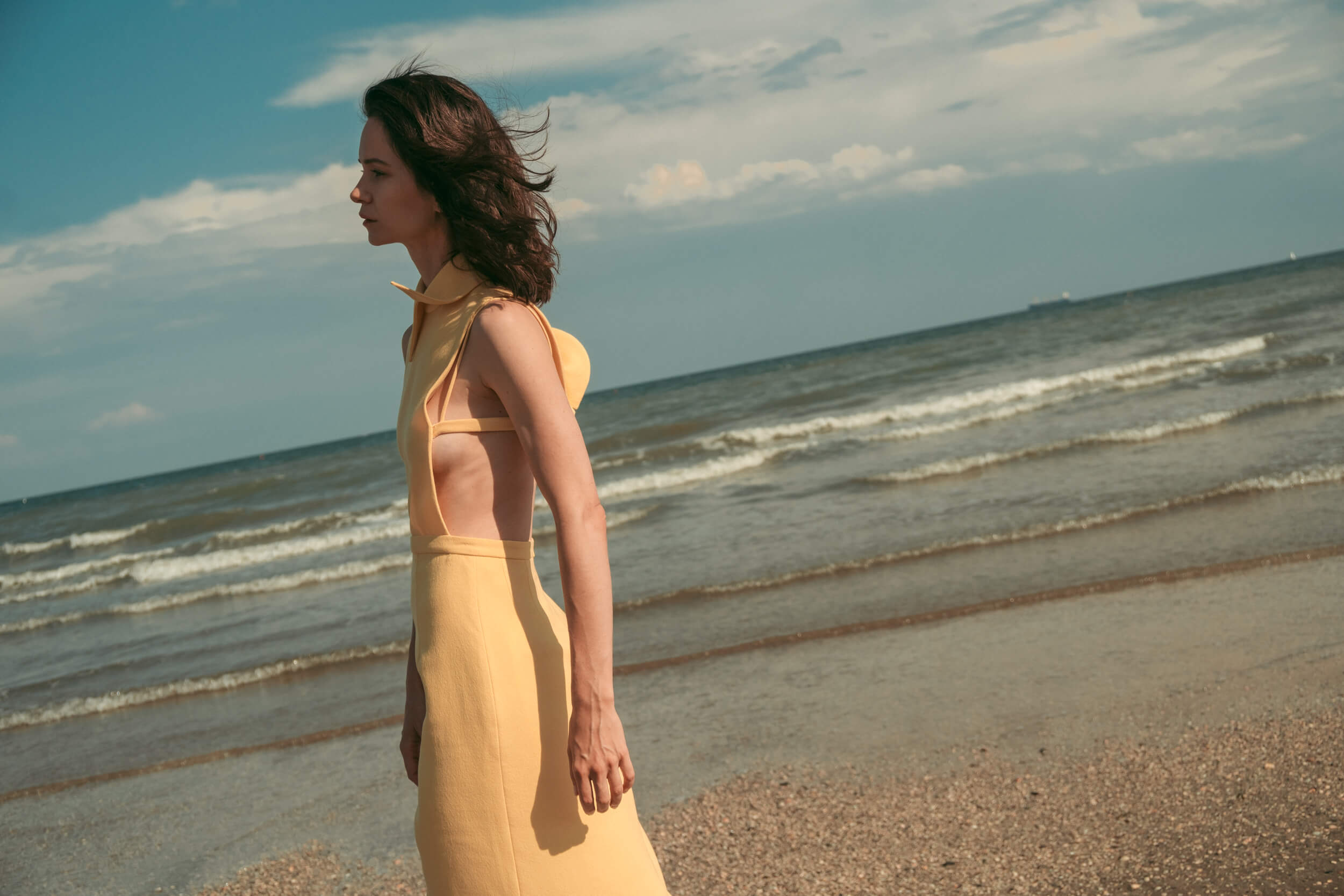
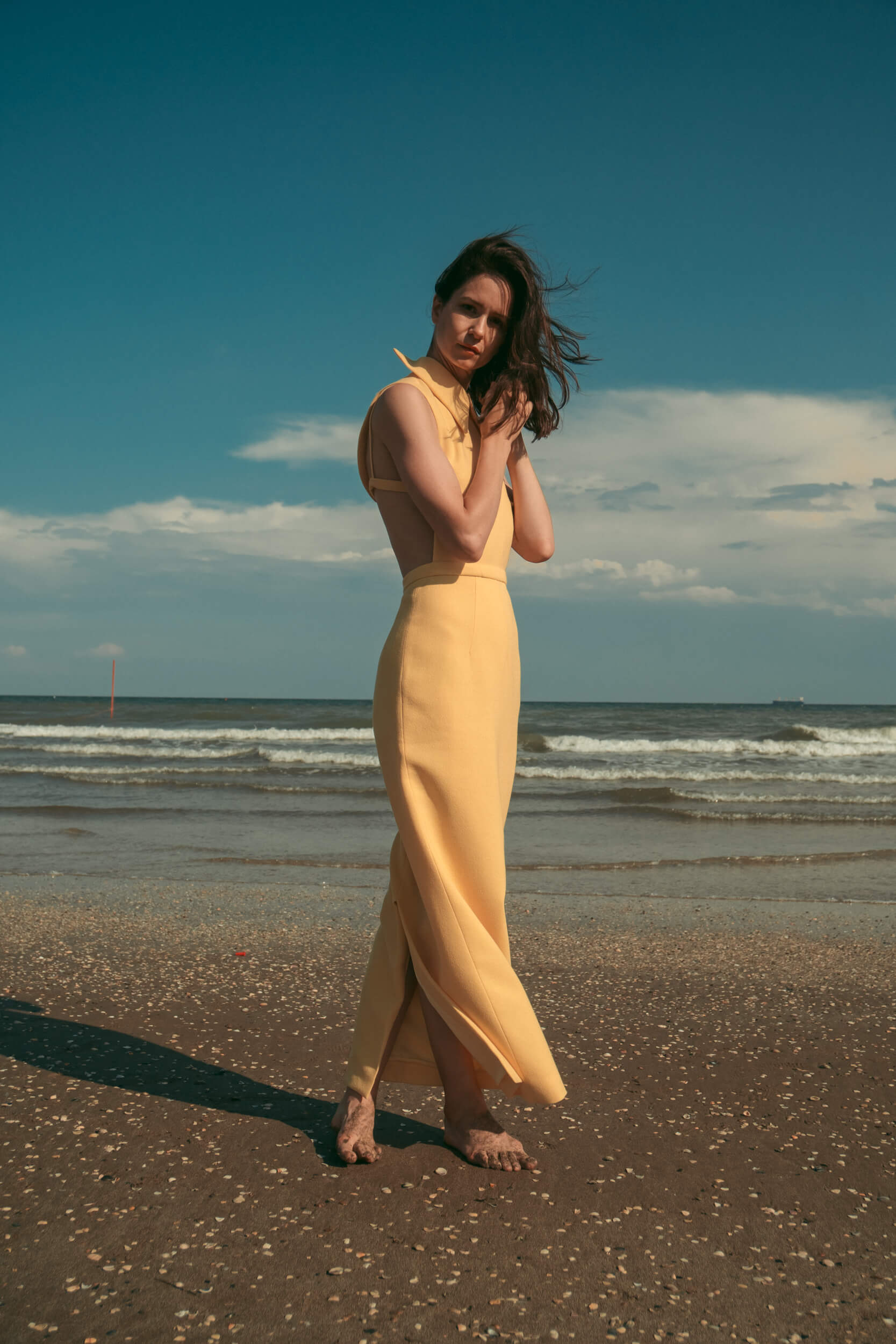
“…we were just two people who really understood that you work your ass off on set, but leave it on set.”
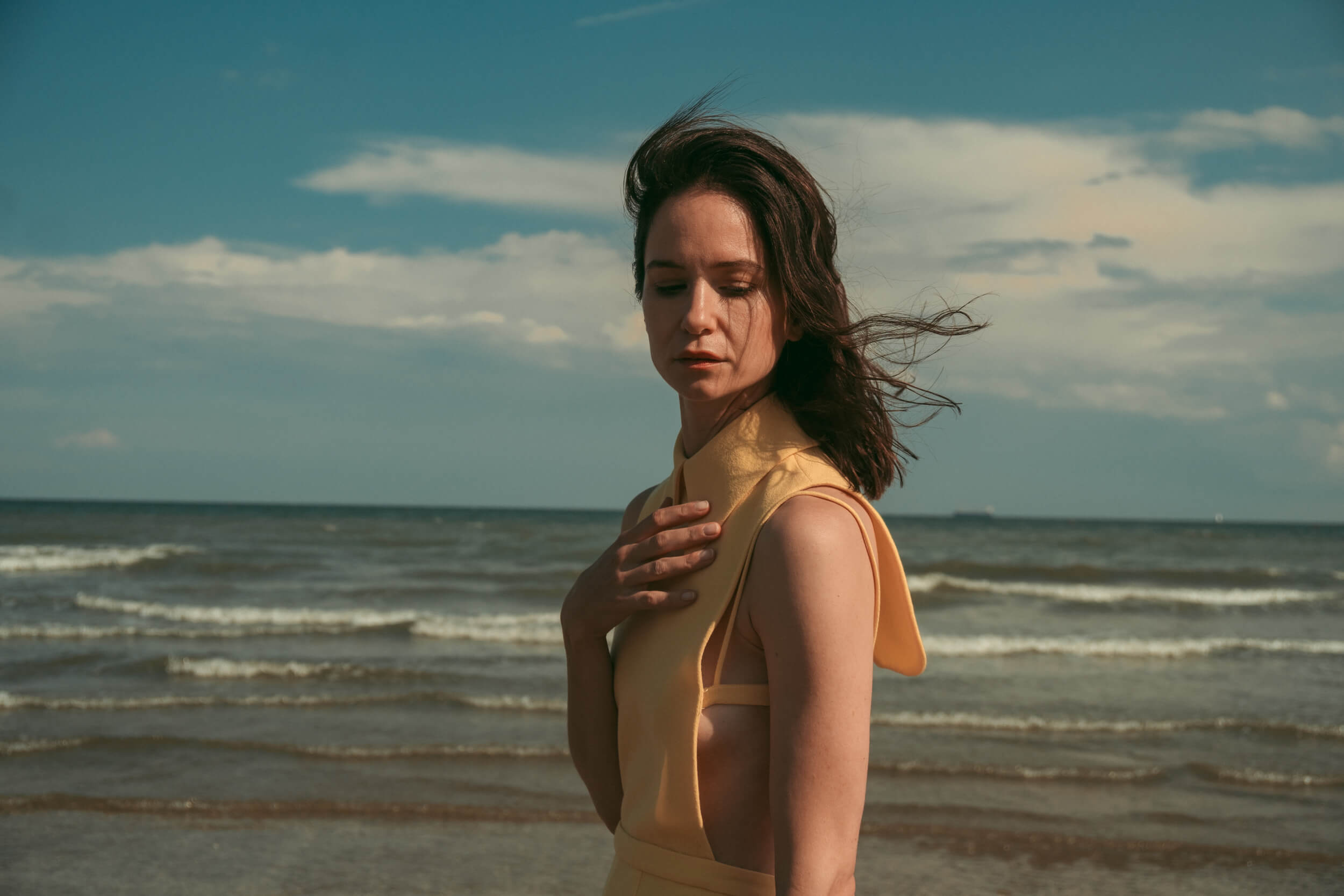
Before meeting Tally, Abigail has problems about living in the moment, being aware of the now, she is always thinking about her past and her despair for the future. How much do you think it’s important also in your life and in your creative work to be present in the moment?
It’s the most important thing in the work, but it’s also difficult. Life is always distracting: on the film set you’ve got the crew moving around, maybe somebody sneezes, or an airplane flies overhead, there are always things happening. It’s kind of a meditative exercise to be able to not be a crazy, delusional person because you see there’s the crew, you can’t change it, you can’t turn it off, but to accept it and not be distracted by it and it’s essential for me to do my job. As a result, on set I’m often quiet between takes, I can’t really look at my phone, or do much of anything, I don’t really want to talk to anybody frankly, I just try to stay in the zone.
Some of the greatest moments in cinematic history are the unexpected improvised moments that the actor was ready to perceive. I think of “Midnight Cowboy,” where Dustin Hoffman is walking across the street and the taxi almost hits him, and it’s a real taxi, maybe the PA who was supposed to hold off the traffic didn’t stop that car, so Dustin Hoffman wasn’t expecting that taxi; and I read he said that in the moment, the line he thought in his head was, “We’re trying to make a movie, here!” but he stayed present in the moment, in the character, and he translated Dustin Hoffman’s thought into “Ratso” Rizzo’s one, which was, “I’m walking, here!” – and it’s an iconic line in the movie – and he smacks the hood of the car. It’s such a New Yorker thing to do and that’s what we want, which is like catching lightning in a bottle, it’s a moment of real-life that you filter through the lens of the character in the world you’re trying to create.
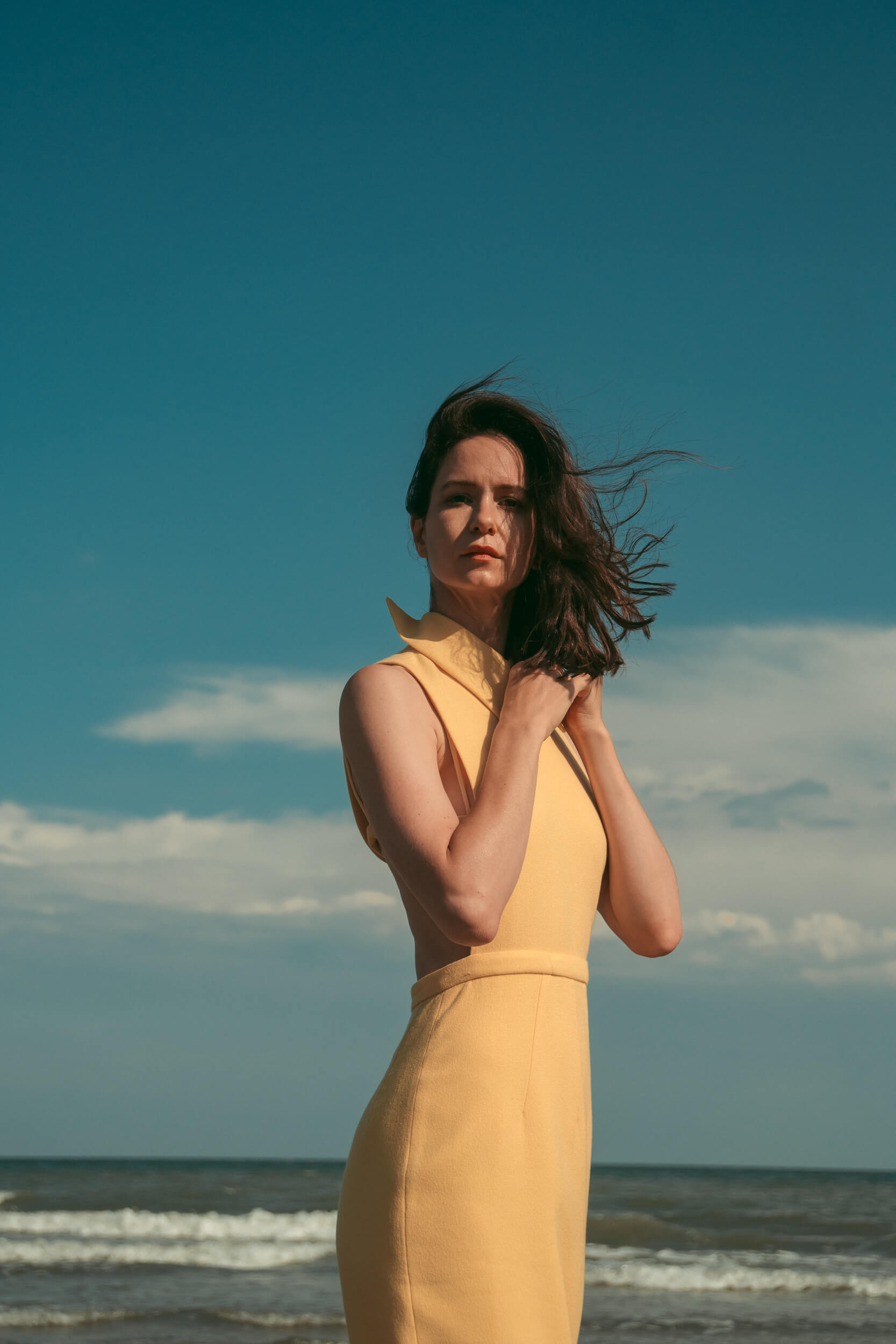
That’s what we hope to do every day on set and we probably put off four times in our whole careers, it’s so hard to do. For me, what keeps me going back for more is just trying to catch those moments where life happens. I think that when we first kissed in this film for me was one of those moments where I felt completely free, but also very much held within the world we were trying to create, but it’s an amazing feeling and it’s very rare for me.
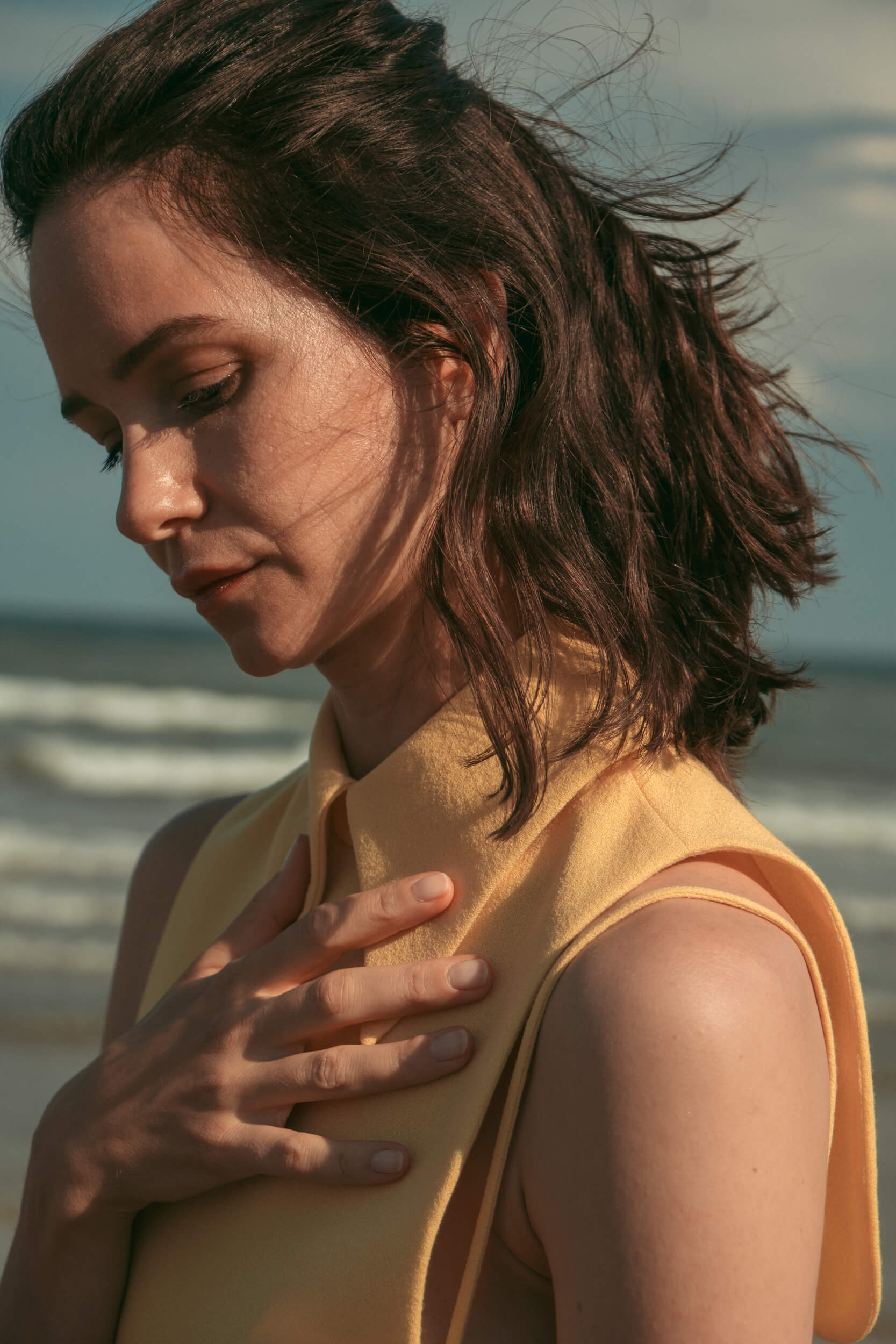
I think, as an actor when you do a new movie, you also learn something new about yourself. Did you discover something new about yourself with this movie?
This movie made me reflect on how I live my life and how much I give and reveal to others, I think it makes you question both: “What you give, is it enough?” and “How much ownership I’m taking of my own life?” What a great risk it is to plant your feet and say, “This is who I am” and own it, own yourself.
Abigail, though very repressed, is actually strikingly unapologetic, for a woman of her period, about who she is, she has a strong sense of what she needs and doesn’t question the fact of those needs. For example, for her, self-education is like the life raft, the only thing that keeps her happy, she knows that she needs that, she values it, she doesn’t think, “I wonder if it is frivolous that I like to educate myself, I wonder if I should just simply be farming,” she has other desires and doesn’t question them and I was quite inspired by that.
This film, maybe above all, reminds us all that our futures are uncertain and this period we’ve been through this year reminds us of this as well. We have no way to predict the duration of our lives, so to those we love and care about deeply today matters a great deal, because we don’t know where we will be tomorrow, or where anyone else will be tomorrow. I think this film is really striking in that sense, do the people you love know that they are loved? Just like that first line I mentioned at the beginning of the interview,
“Are you giving what you can give to the world?”
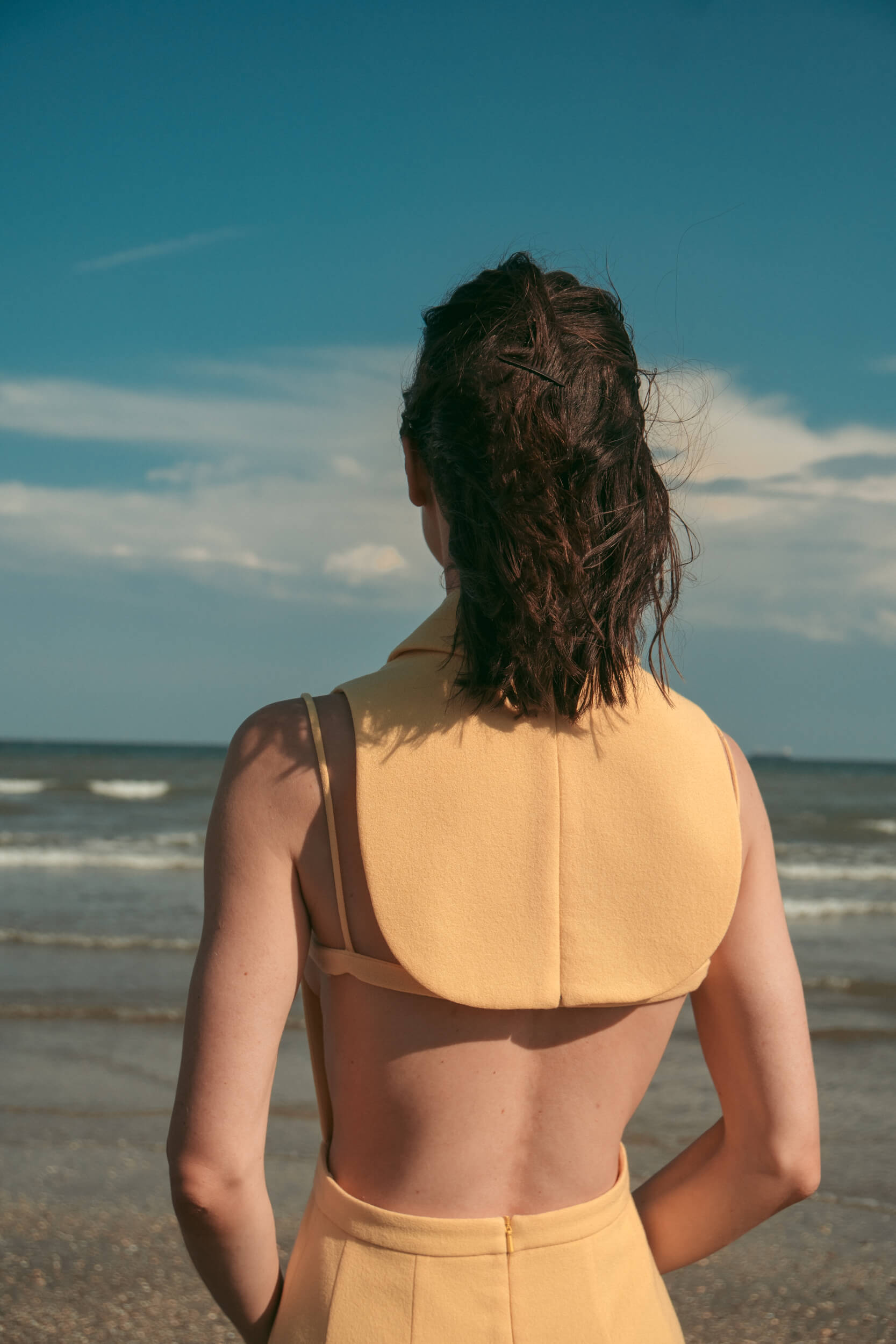
“What a great risk it is to plant your feet and say, ‘This is who I am’ and own it, own yourself.”
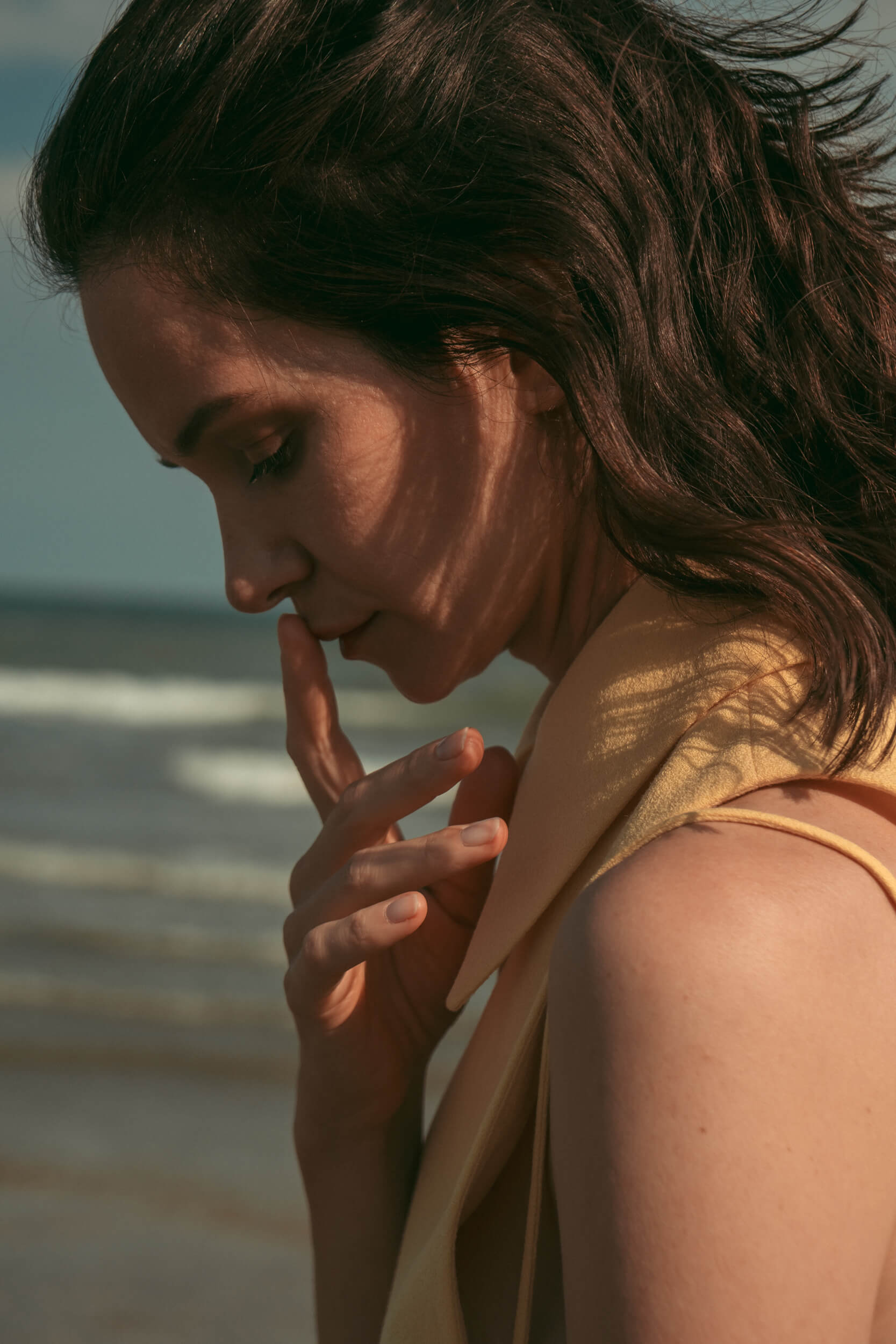
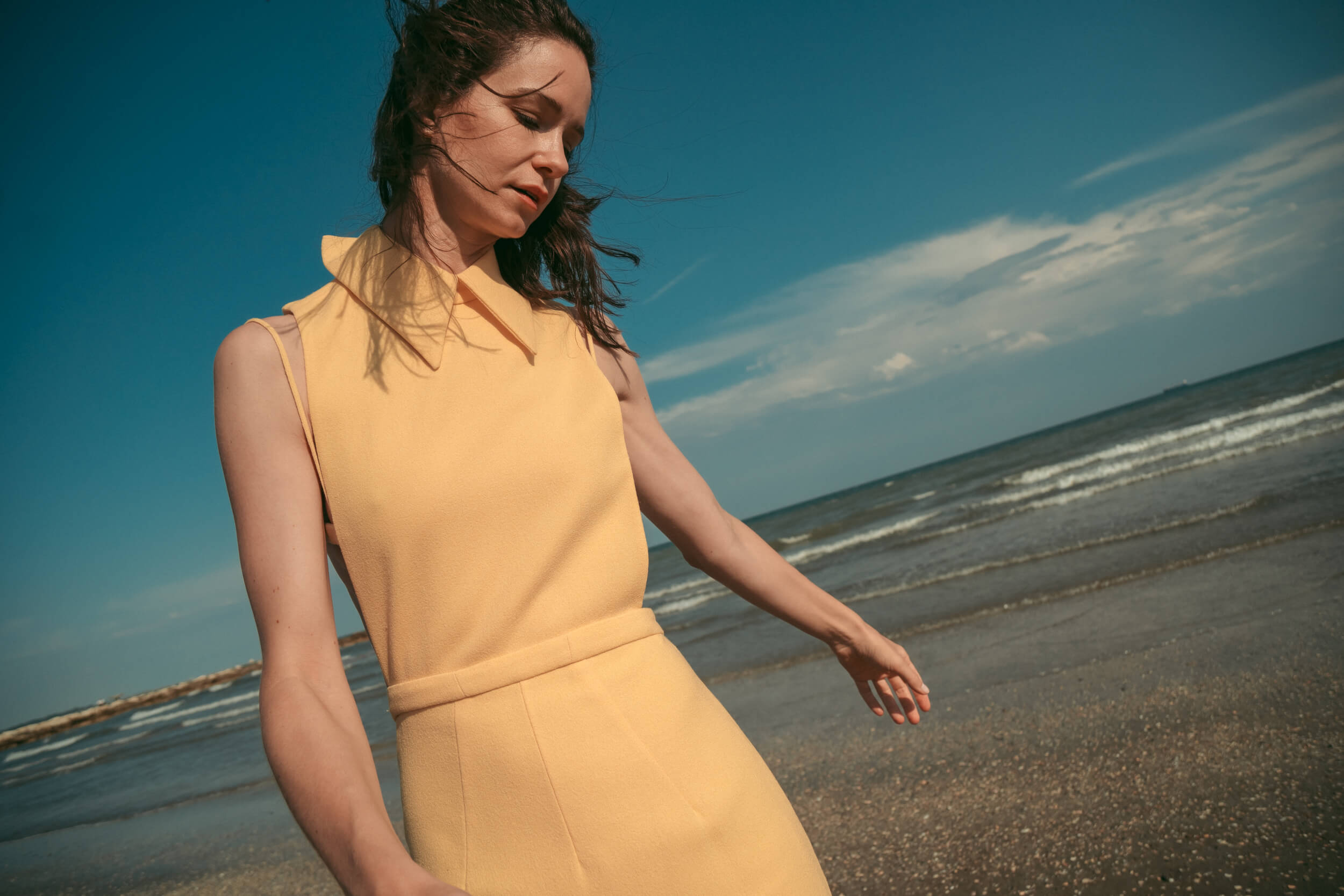
Photos and Video by Johnny Carrano.
Makeup by Alexis Day.
Hair by Paolo Ferreira.
Dress and Shoes by Emilia Wickstead.
The Film Wall







